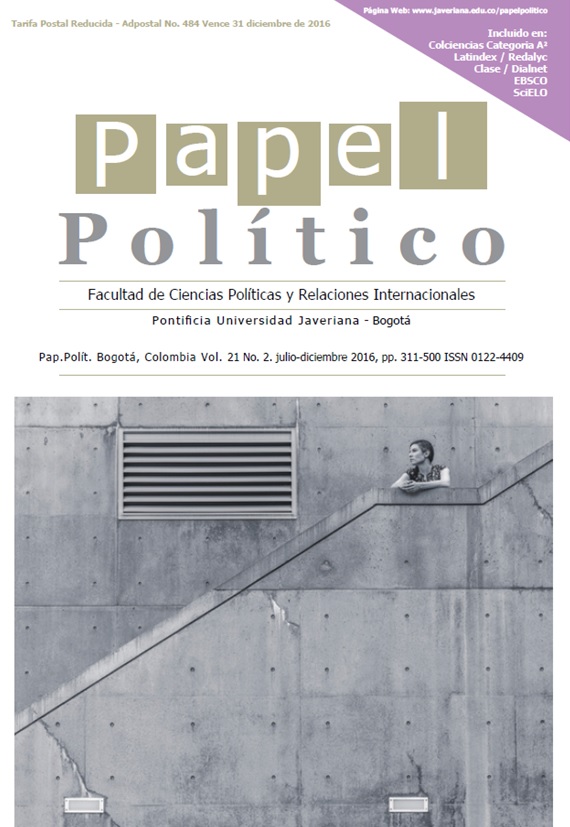Resumo
Este artículo ofrece una caracterización de las organizaciones y los movimientos sociales que suscribieron las declaraciones oficiales del Foro Social Mundial (FMS) en sus versiones de 2001, 2004 y 2008, con el fin de discutir algunas de las críticas más recurrentes que hay frente a este. Para ello, enmarca el análisis dentro de la literatura sobre movimientos sociales globales desde una perspectiva crítica en relaciones internacionales, cuestionando también el carácter unidimensional que las perspectivas liberales le asignan a la sociedad civil. Se ilustran los principales rasgos de los participantes respecto del origen, la frecuencia de la participación, las reivindicaciones centrales y los tipos de organización. El artículo concluye con varias reflexiones sobre la necesidad de indagar con mayor profundidad sobre el rol de organizaciones y movimientos concretos, la construcción de coaliciones en el FMS y las discusiones alrededor de temáticas centrales por ser trabajadas allí.
Esta revista científica se encuentra registrada bajo la licencia Creative Commons Reconocimiento 4.0 Internacional. Por lo tanto, esta obra se puede reproducir, distribuir y comunicar públicamente en formato digital, siempre que se reconozca el nombre de los autores y a la Pontificia Universidad Javeriana. Se permite citar, adaptar, transformar, autoarchivar, republicar y crear a partir del material, para cualquier finalidad (incluso comercial), siempre que se reconozca adecuadamente la autoría, se proporcione un enlace a la obra original y se indique si se han realizado cambios. La Pontificia Universidad Javeriana no retiene los derechos sobre las obras publicadas y los contenidos son responsabilidad exclusiva de los autores, quienes conservan sus derechos morales, intelectuales, de privacidad y publicidad.
El aval sobre la intervención de la obra (revisión, corrección de estilo, traducción, diagramación) y su posterior divulgación se otorga mediante una licencia de uso y no a través de una cesión de derechos, lo que representa que la revista y la Pontificia Universidad Javeriana se eximen de cualquier responsabilidad que se pueda derivar de una mala práctica ética por parte de los autores. En consecuencia de la protección brindada por la licencia de uso, la revista no se encuentra en la obligación de publicar retractaciones o modificar la información ya publicada, a no ser que la errata surja del proceso de gestión editorial. La publicación de contenidos en esta revista no representa regalías para los contribuyentes.


